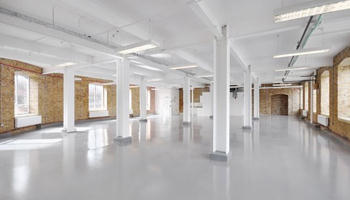

It is best to be aware of the legal implications...
Every new business will require premises to operate from. This can range from a small serviced office to the acquisition of a commercial building. Realistically very few businesses, let alone new start ups, will have the capital available to acquire a commercial building entirely. A more practical option is for a business to take a lease of part or all of a building. A lease is a form of contract that dictates the terms of the business tenants occupation.
The landlord (the owner of the property) will want to ensure that all the rules of the tenants occupation are detailed in the lease. It must be appreciated that leases are very comprehensive documents. The business tenant will have to make a large number of covenants with the landlord concerning their occupation. A covenant is a binding obligation that the tenant has to abide with at all times.
Standard commercial leases will contain a number of covenants which the business tenant must be aware of. The lease will detail how the property will be maintained and or repaired.
The vast majority of business leases will be on a full repairing & insuring basis. This means the tenant will be responsible for repairing the whole of the property, demised by the lease, and this can extend to the structure of the property whilst the landlord will insure the property and recover the cost of the premiums from the tenant via an additional insurance rent. This could potentially mean a substantial demand upon a tenant for repair contributions. This is a standard lease term and is likely to be insisted upon by the landlord.
How can a tenant avoid potentially expensive repair demands?
It is imperative that when a business considers acquiring a new lease that it instructs a surveyor to survey the building. The surveyors report will disclose the need for repairs to the property in the short and medium term and will form the basis of estimates for likely repair contributions.
The need for a detailed survey is also imperative in respect of environmental and asbestos issues. The above repairing obligation will encompass any polluting substance or asbestos present at the property. A tenant could be faced with a fine, from the local authority, for the presence of such substances and the cost of removing them.
The lease will be agreed for a definite period of time and the tenant will have to abide by all of the covenants for the entire duration.
What if events take a turn for the worse or, more positively, the new business exceeds expectations and outgrows the property? Potentially, the tenant could be bound by the terms of the lease even though they now want to exit the property. To avoid this situation the tenant can insist upon a break clause. A break clause allows a tenant to serve notice upon the landlord that they wish to exit the property before the end of the lease. For instance, if a lease was agreed for a period of 8 years there could be a break after 4 years. This allows the tenant a degree of flexibility and the potential to exit the lease if so required. However, the landlord may refuse the inclusion of a break clause, as it will devalue his potential earnings.
This brief summary cannot cover all areas which have to be considered by new businesses when arranging property to operate from. However, it is imperative that any business, whether new or established, obtains quality advice, from a range of professionals, before agreeing to acquire a property or to taking a lease of a property. The temptation to cut costs at the outset may well result in expensive problems for the future.





As we cannot be experts in every relevant subject, we would love to receive 'guest' articles that may be of interest to anyone running their own business or thinking of doing so. ADD YOUR ARTICLE
